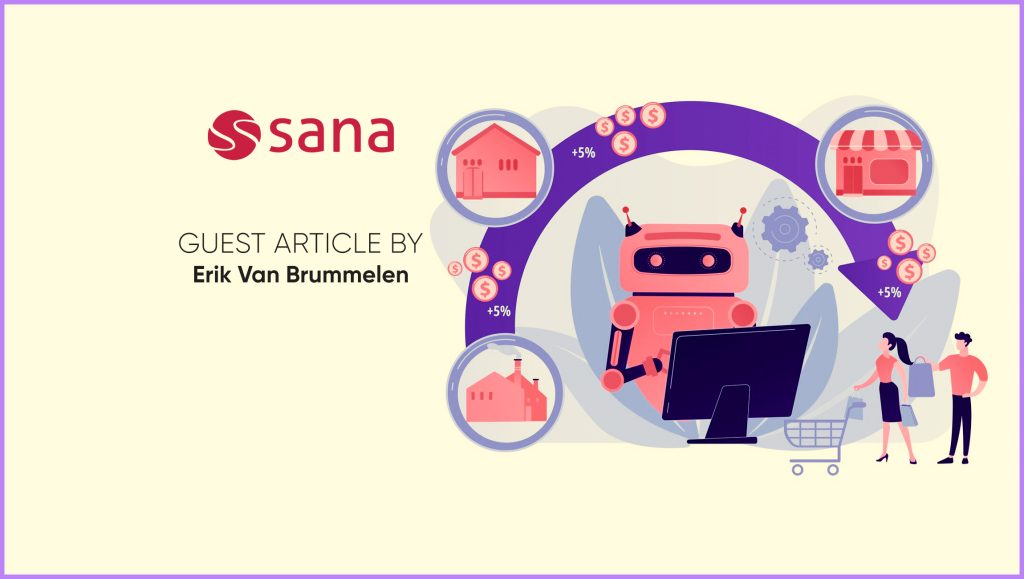When it comes to B2B sales, staying ahead of the curve is a never-ending battle. Ideas and innovations rapidly move from paradigm breaker to standard to outmoded. Customers demand not only an online buying experience, but a personalized one that reflects their catalogues, agreed upon pricing, transparency, order accuracy, and a whole host of other components.
Faced with these demands, B2B companies need to invest in AI as a powerful solution that can unlock their revenue potential. In fact, 81% of B2B businesses are already investing in Generative AI, with 79% intending to ramp up spending in the next year.
When used effectively, AI can deliver real wins, such as unearthing high-value leads, personalizing customer interactions, providing beneficial product and sales information, predicting buyer behavior, improving forecasting, and much more.
How AI fuels B2B revenue growth
AI, both traditional predictive AI such as forecasting, as well as cutting-edge generative AI (GenAI) like GPTs, can work to automate business practices, solve complicated issues, and provide support for teams – sales teams, marketing teams, developer teams, customer success teams.
Here are several key areas where we’ve seen the most ROI value through AI.
Sales forecasting
Predictive AI can provide far more accurate sales forecasts through studying past sales patterns and thus providing more accurate outcomes. Similarly, this forecasting can be used to score leads – both of which can help discover where to focus your efforts.
However, the data provided by predictive forecasting is only one part of the equation. Generative AI can then interpret the forecasting data to create reports that sales teams can use to act upon that data and ultimately generate more revenue.
Automating workflows and admin tasks
Sales teams should be focusing on building relationships, not filling out admin tasks like copying invoices over and over. AI can automate tedious workflows, freeing up sales representatives to find new leads, close more deals, and ultimately boost revenue for your business. A study by Harvard Business Review showed that 40% of time spent on sales activities could be automated, furthermore businesses using AI could see a 50% increase in leads and appointments, lead cost reduction of 40-60%, and a 60-70% call time reduction. Taken together, these metrics translate into a significant reduction in non-revenue generating work, allowing your sales teams to build more revenue for your business.
Read More: SalesTechStar Interview with Dan Lee, CEO of Nooks
Personalized customer experience
GenAI can provide a better customer experience that ultimately results in higher conversions, fewer abandoned orders, and more satisfied customers.
Traditional AI algorithms can provide customer segmentation, giving your marketing teams more granular and detailed data to use as a foundation of effective campaigns. Sales and marketing leaders can then rely on GenAI tools such as GPTs to even build campaigns (or, at minimum, provide outlines and proposals for campaigns).
From the customer-facing side, AI-powered chatbots can provide clarity to the purchase process, reducing the need for time-consuming phone calls, unanswered support emails, or online research for offline purchase. GenAI chatbots can provide detailed, informed answers based on your product data – giving your customers the confidence they need to make a purchase.
Even more advanced, guided selling – where customers are prompted to complete a series of dynamic questions which result in a more accurate set of product recommendations – can help customers cut through reams of products quickly, helping them find what they need without bogging down sales and customer support teams.
All of these AI tools work together to boost conversion rates, lower cart abandonment, and decrease time per order – further boosting your revenue.
Stronger sales and marketing performance analysis
AI can help guide your sales teams by giving you real-time insights into what strategies are working and which need to be reconfigured. By tracking key metrics such as conversion rates, cost per lead, customer lifetime value, and lead scoring, AI can identify areas for improvement and generate recommendations on how to optimize sales strategies that are tailored to your business.
Similarly, marketing teams (and other client-facing teams) can assess the success of their campaigns through AI-powered analytics. By looking at key metrics such as engagement rates, click-through rates, open rates, and movement through the funnel, AI can provide feedback and recommendations on how to improve marketing strategies to ultimately increase revenue.
AI: Your ticket to generating B2B revenue
In 2024, AI is no longer an ambitious piece of science-fiction; it’s a must-use to boost B2B revenue. 81% of B2B businesses are using AI – resulting in smarter forecasts, higher conversions, streamlined processes, and more satisfied customers. It isn’t a fad; it’s a requirement.
The bottom line? If you’re not leveraging AI, you’re leaving money on the table.
Erik Van Brummelen is Director of Finance at Sana Commerce.
Read More: Revenue Lifecycle: Biggest Problems in Current B2B SaaS Revenue Lifecycles and Tips to Solve Them





















